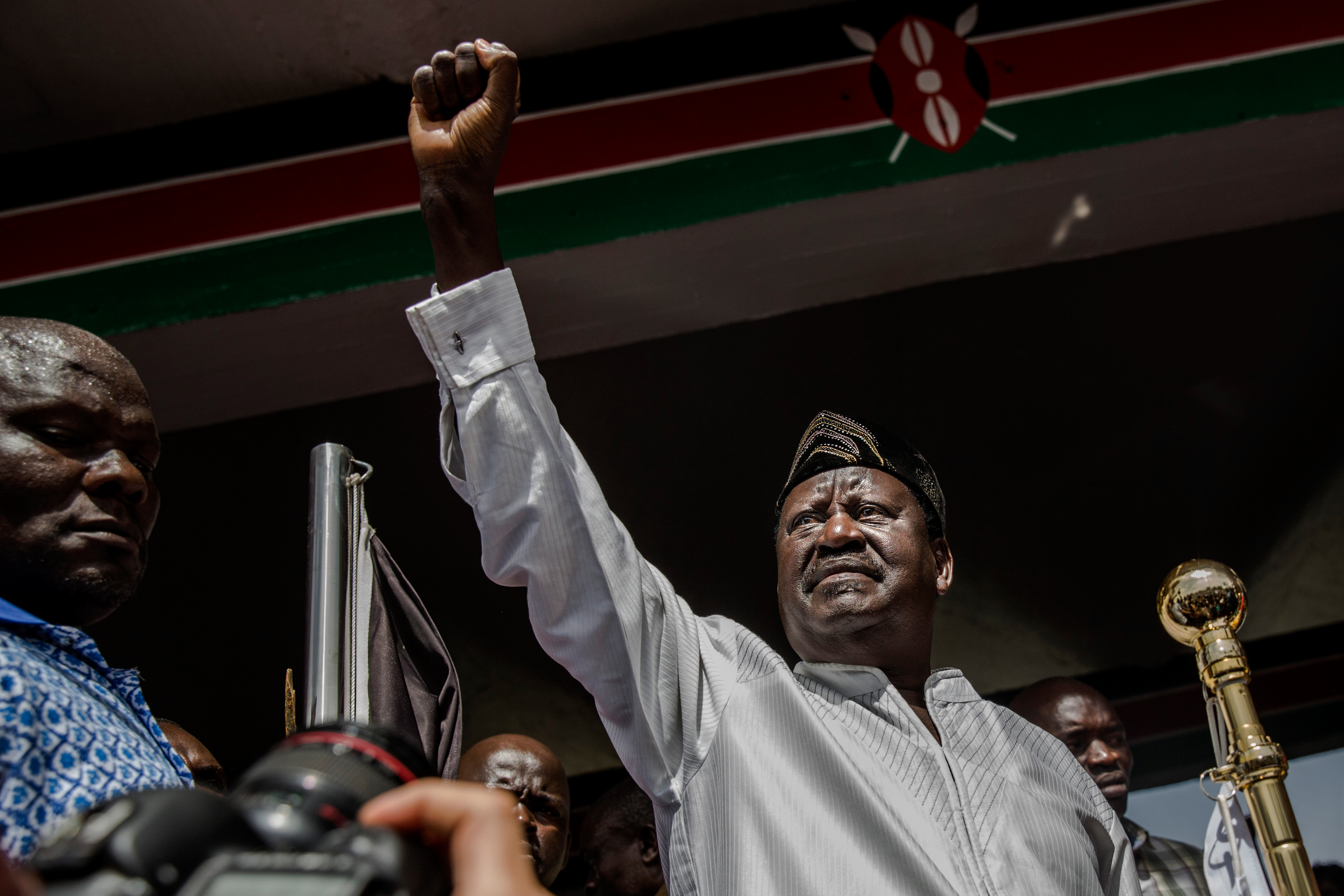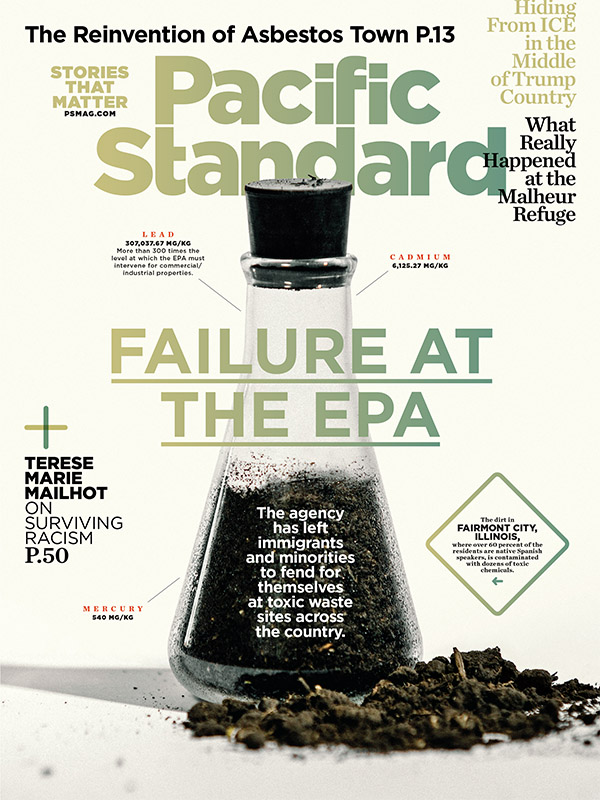
(Photo: Luis Tato/AFP/Getty Images)
By Election Day in August of 2017, Nairobi, a city of more than three million, is deserted. Shops are closed, and Moi Avenue, the city’s central artery, is a lonely stretch of six empty lanes. It’s rainy and cold, and the dead air is pierced only by a single, high piano note drifting from the hotel where Eric, my Uber driver, picks me up. Eric is having mixed feelings this morning—he usually loves the rain because it makes the city less congested, but there are already far fewer people out today on account of something else, he says. Over the past few weeks, he’s been shuttling people to the airport and bus stations, “but now I’m crying because all my clients are gone.” Thousands of people have left the city because today is Election Day, and people are afraid of dying.

I’ve been to Kenya several times, but on my first trip, after the elections in December of 2007, I didn’t get further than the airport waiting room. The night before the results were announced, opposition leader Raila Odinga was in the lead. But when Kenyans woke up the next morning, the election had unexpectedly flipped in favor of incumbent president Mwai Kibaki. Thousands of people took to the streets in protest. Houses and churches were burnt to the ground. The violence left more than 1,000 people dead and more than 600,000 displaced. Inside Nairobi’s Jomo Kenyatta International Airport, I saw scores of Kenyans—most of whom were taking refuge from the violence—stretched out in the hallways and terminals alongside travelers awaiting their connecting flights. Women wearing colorful wraparound skirts and plain white T-shirts handed out by relief agencies dipped in and out of the airport prayer room, quietly watching the small wall-mounted televisions, which flickered with scenes of violence unfolding just outside the airport gates.
Three of Kenya‘s largest ethnic groups—the Luo, Kalenjin, and Kikuyu—were the main perpetrators of this bloodshed. The Luo and Kalenjin were on Odinga’s side. The Kikuyu were on Kibaki’s. At stake was economic advantage: instant wealth for members of the president’s tribe, and continued poverty for everyone else.
Now, almost a decade later, the people of Nairobi did not want to be caught out on the wrong side of the political or ethnic divides. Odinga, 73, was running again, against incumbent president Uhuru Kenyatta, a Kikuyu elected in 2013. Odinga had lost that election, too, but this was likely his last chance to run because of his age. Kenyans I met feared this would make him desperate enough to call for violence in his name. So they left.
I went to watch them go. On the Saturday before the polls opened, the main thoroughfare was not yet lonely. En route to the Machakos bus station downtown, I navigated sidewalks teeming with families hauling large, overstuffed suitcases, crates of onions, blankets, and housewares.
The bus terminal was even more crowded. It primarily serves counties in western Kenya, an Odinga stronghold, and has the cheapest fares. On this day, they had tripled in price because of high demand. It seemed as if the entire city were emptying out.
“I’ve never seen so many people here!” I kept hearing people say.
Families sat on their suitcases, bundled in winter coats against the cool morning weather. Ticket operators shouted directions in Swahili at buses adorned with wild drawings and bright colors. Astine, who was traveling with his wife and young son, said he feared election violence and thought it would be safer in Kitale, a city some seven hours northwest of Nairobi. If things stayed calm, most people planned to return to Nairobi within a week.
Those with means traveled by car. Esther, who works as an economist for an international organization, was spooked by the fact that most employers had advised their expatriate workers to leave the country for safety reasons. Her office had emptied out, so she headed to the western part of the country to be with her grandparents. She gets along well with her neighbors of other tribes, but she didn’t want to tell them she’d be leaving town.
Steve, a Luo bookseller who supports Odinga, drove his brother’s family to western Kenya over the weekend because “it’s better to be safe than sorry,” he said. He’d left Nairobi before 6 a.m. to avoid traffic, but when he returned to the city a few days later, the bus he was riding on was half empty. During the 2007 post-election violence, his uncle was run off his land in Nakuru, a majority Kikuyu area, where locals told him to leave or watch his house be burnt down.

Eric drops me off near the Kangemi slum. Parked cars line the narrow road leading to the elementary school acting as a polling station. People hurry along, hard-nosed against the rain.
When I walk through the school gates, everything is calm. Hundreds of people are waiting in one of 13 lines to vote. Everybody seems to be waiting for something to happen. Ambient sounds—the rumbling of an engine, the rattling of a tripod—are amplified.

(Photo: William Widmer)
The next day, results begin to trickle in. Kenyatta is in the lead, and Odinga appears on television to reject the results, claiming that the IT system used to tally votes has been hacked. Clashes erupt in the Mathare slum, but are short-lived. Two apparent thieves are shot dead by police, but “that’s just another day in Mathare,” an aid worker says. Odinga exhorts his supporters to keep their businesses closed in protest, but they largely ignore him. The European Union Election Observation Mission declares the vote transparent and free from manipulation. Kenyatta is declared the winner, but Odinga demands that election officials publicly release the data in their computer systems.
On September 1st, the Supreme Court annuls the election results for the first time in history, citing problems with the election commission’s methodology. Odinga pulls out of the second round of voting, declaring the election a sham and urging a boycott. On the second Election Day, Odinga supporters blockade polling stations in his stronghold neighborhoods and threaten anyone who tries to vote.
This time, with a feeling of fatigue setting in, few people even leave Nairobi. “People just stay and pray that they will be safe,” Steve says. Esther stays put too, but boycotts the vote. Others have spent too much on travel in August, and want to save for Christmas.
For a second time, Kenyatta is declared the winner. In the following days, at least 14 people are killed.
A version of this story originally appeared in the May 2018 issue of Pacific Standard. Subscribe now and get eight issues/year or purchase a single copy of the magazine. It was first published online on April 23rd, 2018, exclusively for PS Premium members.





